Finding a home in science
Homeless teen finds fame, refuge in marine biology research
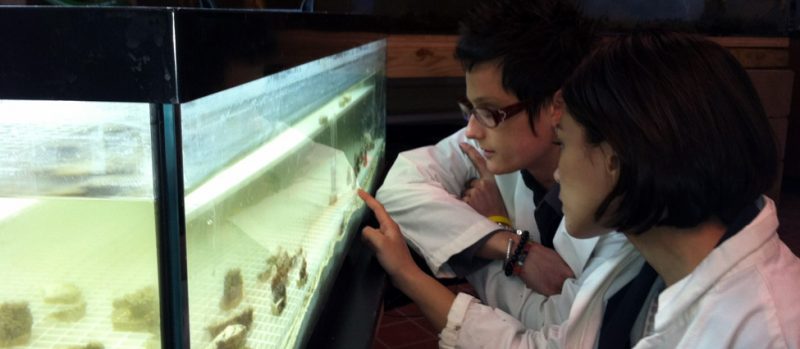
Most people think about mussels only when considering whether to order them from a menu. But for Samantha Garvey, an 18-year-old high school senior from Brentwood, N.Y., studying mussels in their marine habitat is a passion. And it turns out her excitement about science is her lucky charm.
In 2011, Garvey studied how mussels living in Long Island Sound’s salt marshes protect themselves from predatory crabs. In January, this research won Garvey — at the time homeless — a semifinalist spot in the 2012 Intel Science Talent Search, or Intel STS. Society for Science & the Public, publisher of Science News for Kids, runs the annual competition.
After being named a semifinalist, Garvey’s science almost took over her life. She became a media sensation and her story appeared on websites and in newspapers around the country.
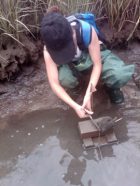
She was a guest on the Ellen DeGeneres show. AT&T gave the teen a $50,000 scholarship. Her congressman, Representative Steve Israel, invited her to be in the audience when the president delivered his State of the Union speech to Congress in January. And in February she went to the White House Science Fair, where she explained her mussel experiment to President Barak Obama himself.
Getting so much attention felt very weird, Garvey admits. “If you are in that position it feels like it is not really happening,” she explains. “Not like it shouldn’t be happening, but it’s like you’re not the person they are talking about. It’s like you wouldn’t attribute such high words to yourself, but people are saying it, and it feels weird.” DeGeneres, for example, told viewers that Garvey is “an amazing person.”
Garvey says that her research even helped her to forget about her family’s troubles. “I could go to the salt marsh and I could go to the lab, and those places were my home,” Garvey says. “I went to these places day after day and did research or studied, and I didn’t have to really worry about what was going on at home, because my mind was focused on doing my work,” she says.
Eventually, the teen’s interest in marine biology even helped her family. Living in a homeless shelter since New Year’s Eve, Garvey’s plight got the attention of people who could help her family find local, affordable housing.
Clamming up
The Intel STS contest judges were wowed by Garvey’s experiment. The young scientist discovered that the ribbed mussel — mollusks that look like small clams — develop thicker shells when they live near hungry predators such as the Asian shore crab.
Mussels do a great job keeping salt marshes healthy, says Dianna Padilla, a marine scientist at Stony Brook University in New York. They filter particles out of the water and deposit those they don’t eat onto the bottom of the marsh. The material from the mussels helps build up sediment so plants can grow. So Garvey focused on an important species, even if it lives largely out of sight.
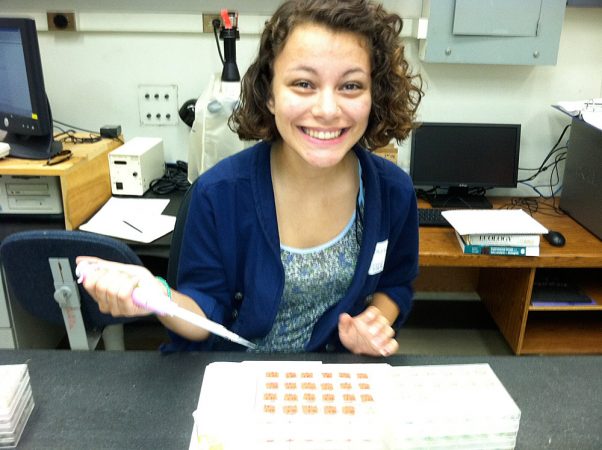
Garvey has loved marine science since she was about 6 years old, she says. “I remember when I was little, my parents had to pry me away from the TV because I was spending so much time watching shows on the National Geographic and Discovery Channels,” Garvey says.
She says she feels lucky that her passion for science has made it easier to deal with high school stress. Brentwood High School is among the poorest public schools in New York State, and many students struggle to stay in school, observes Rebecca Grella, Garvey’s science teacher. Some families, including Garvey’s, have so little money that they can barely pay rent and eventually have to move into a homeless shelter.
Padilla says she marvels at Garvey’s concentration. “It is hard enough to be a teenager who takes science seriously and works hard at it, and does all of this extra research plus the regular school work,” Padilla says. “It is even harder to accomplish all of this with a family security problem on top of it all.”
On her way to becoming an Intel STS semifinalist, Garvey received plenty of help from Grella, who is also a graduate student at Stony Brook University. When Garvey was in the ninth grade, Grella gave a talk to kids who might want to do a research project at the high school and in collaboration with Padilla’s Stony Brook lab.
Garvey applied, and soon she and fellow Brentwood High School student Vivian Vuoug were wading in Long Island Sound, collecting mussels under the wings of Grella and Padilla. Padilla was working with graduate students researching the ribbed mussel in its native habitat, the salt marsh.
Last summer, the Toyota TAPESTRY Grants for Science Teachers program paid for Garvey and a few other high school kids to move into dorms at the university and conduct their research alongside college students. Padilla was impressed by Garvey’s enthusiasm. “In many ways, the high school students outperformed the graduate students who were working in the lab,” says Padilla.
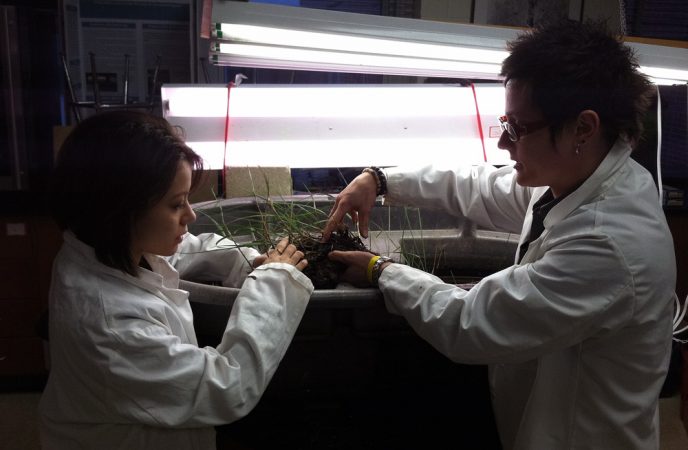
Garvey later designed her own research on ribbed mussels. While splashing around the marsh, she noticed that mussels living farther away from the Asian shore crab develop thinner shells. The teen wondered why. After experimenting with different ideas, she figured out that the scent of the Asian shore crab triggered nearby ribbed mussels to develop tougher shells, for protection.
When Grella first talked about the mussel experiment to students at Brentwood High, Garvey couldn’t understand all of the details. “It all looked like Chinese to me,” Garvey says. But something about the way Grella described her research touched a nerve with Garvey.
Grella mentioned the breast cancer treatment she had received years earlier, and how doing research took her mind off of her illness. Rather than study cancer in humans, Grella told the students, she studied something similar to cancer in plants.
“Grella had her own adversity,” Garvey says. “Her science was an outlet for her. And I thought, wow, if that was her outlet, then maybe it could be mine.”
With most of the media excitement gone, is Garvey sick of science?
“No way!” she says. “I want to continue doing research.” She’s aiming for a Ph.D. in marine biology.
And she offers this advice to other teenagers who dream of a better life: “I decided that if I keep doing what I love, I can make a better life for myself. If you keep your head up and you keep moving forward, things will get better.”
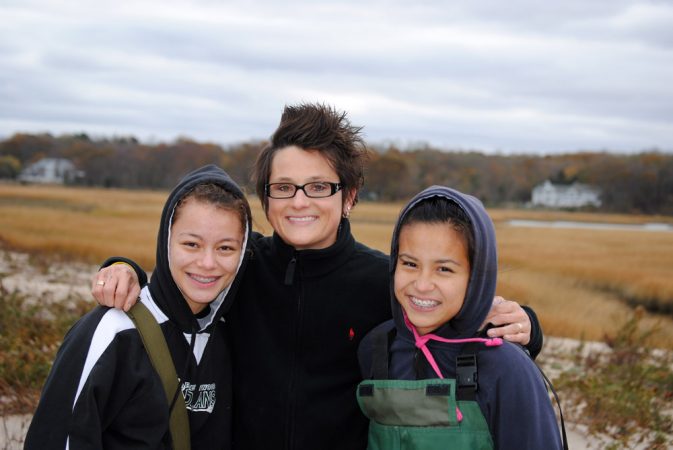
Power words (Adapted from Merriam-Webster student dictionary)
Mollusk: Any of a large group of animals (including snails, clams and octopuses) with a soft body lacking segments and a backbone and usually enclosed in a shell containing calcium.
Particle: A very small quantity or piece.
Predator: An animal that that kills and eats other animals.
Sediment: A mixture of dirt, sand and rocks.
Salt marsh: Coastal land submerged by shallow salt water.